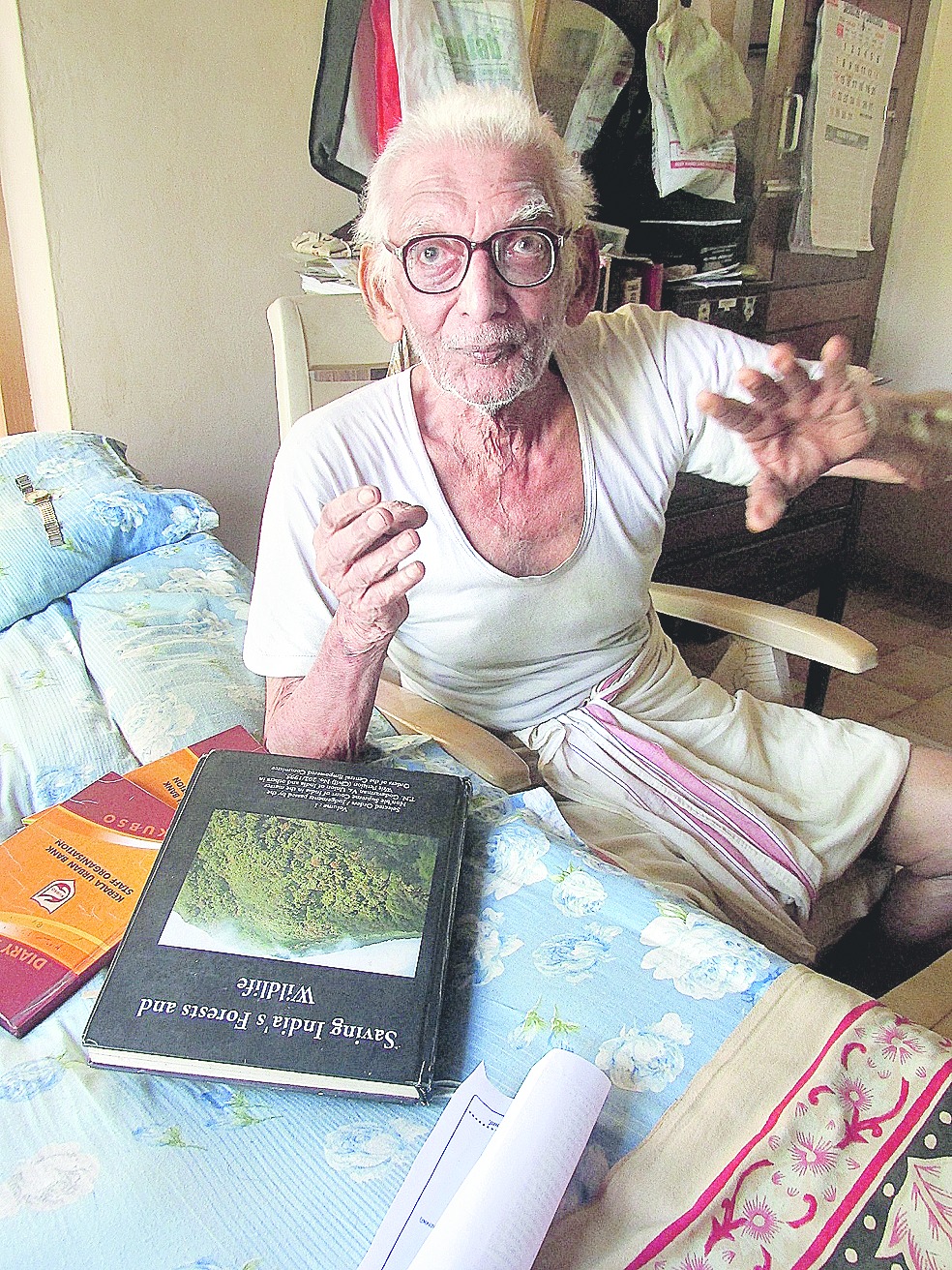
Thiruvananthapuram, June 2: A revolt against his family members had awakened the environmentalist in T.N. Godavarman Thirumulpad, born in the royal household Nilambur Kovilakam in Kerala's Malappuram district.
The passion grew with time and finally took him to the Supreme Court with a PIL in 1995 to save the precious tropical rain forests that make up the Nilgiri biosphere from the timber mafia. The forests were taken over by state governments from the Kovilakam.
Subsequent judicial intervention on his petition, which remains open to this day, laid the basis for India's environmental jurisprudence.
"The Kovilakam manager would distribute land to family members for cultivation and they, in turn, used to cut down all the trees and sell it. It was in my early twenties and pained me. One day I wrote to the manager saying I'm a Kovilakam member too and needed 50 acres to grow paddy. I stressed that I wanted land which was full of trees. The manager understood the sarcasm. Subsequently, the head of the family intervened and ordered corrective measures," Thirumulpad had told The Telegraph over a year ago at his son N. Rajendra Varma's home in Nilambur.
At 86, Thirumulpad was still willing for another fight but breathed his last after a sudden cardiac arrest on Wednesday evening.
Conservationists call the Thirumulpad case a watershed in India's legal history. Although there was the Forest (Conservation) Act of 1980, which said the central government's sanction must be taken before forestland is diverted for non-forestry purpose, no one paid any heed to it. But this changed after the Godavarman case. The first order in 1996 defined for the first time what a forest is and went on to play a critical role in saving ecologically sensitive forests in the Northeast and elsewhere.
"The Supreme Court's intervention in the case enlarged the scope of the Forest Conservation Act and to some extent the Wildlife Protection Act of 1972. The petition has since been kept alive by the court by way of what is called a continuing mandamus. Hundreds of environmental litigation have been added to the original petition. The orders saved thousands of hectares of forest across the country from being diverted for non-forest purposes," said P.P. Pramod, deputy conservator of forests (forest resources).
Subsequent litigation in the Godavarman case led to the setting up of the landmark Compensatory Afforestation Funds Management and Planning Authority (CAMPA) under chairmanship of the union environment and forest minister to oversee the management of funds raised from those diverting forest land towards afforestation purposes.
Last month, the Lok Sabha passed the Compensatory Afforestation Fund Bill, 2015, which environment minister Prakash Javdekar said would unlock about Rs 41,000 crore, which has been lying unspent, for afforestation.
At the time of Independence, Kovilakam was the sole owner of the thousands of hectares of forests which stretched from the Mysore border to Calicut in Kerala and spread across Gudaloor (now in Tamil Nadu). In 1947, the then ruler, Manavedan Raja, had requested the then Madras government to take over the land, saying it was impossible to look after it.
The forest was taken over in 1949. After the formation of Kerala, it got divided between the state and neighbouring Tamil Nadu. New dangers like the timber mafia arose eventually, against which Thirumulpad approached the Supreme Court.
"The mafia tried to dissuade me. They offered me money. I told them 'OK, bring it but only four of you should come. I have a revolver with five bullets in it. I will kill all four of you, then shoot myself and leave a message for my wife to burn me in that currency'," Thirumulpad recalled having told those who tried to bribe him.
The fifth of six siblings, Thirumulpad finished schooland joined the intermediate (plus two) course but could not complete it as there was no one else to look after the farms.
During his intermediate at The Zamorin's Guruvayoorappan College, Thirumulpad said he had the occasion to attend an officers' camp conducted by the RSS near the college and it exposed the royal in him to civilian life and influenced him to take up social causes.










